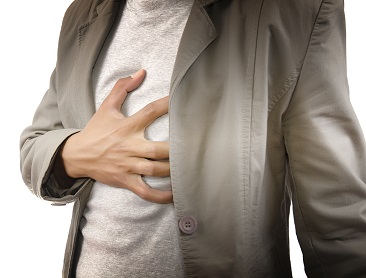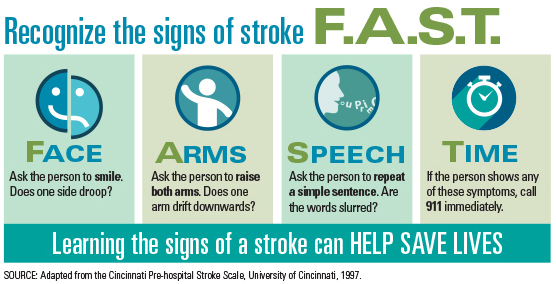Heart Disease
“Heart disease” refers to several types of heart conditions. The most common type of heart disease in the United States is coronary artery disease, which affects the blood flow to the heart. Decreased blood flow can cause a heart attack.
CALL 9-1-1 if you or someone you are with shows any signs of a heart attack.
Signs of a Heart Attack 

- Pain or discomfort in the jaw, neck, or back.
- Feeling weak, light-headed, or faint.
- Chest pain or discomfort.
- Pain or discomfort in arms or shoulder.
- Shortness of breath.
Risk Factors
- High Blood Pressure (In 2017, 35.2% of Hoosiers were told they have high blood pressure.)
- High Cholesterol (In 2017, 32.8% of Hoosiers were told they have high cholesterol.)
- Diabetes (IDOH Diabetes Information)
- Physical Inactivity
- Poor Nutrition
- Obesity
- Smoking
- Excessive alcohol intake
Preventing Heart Disease

- Eat a healthy diet - add more fruits and veggies to your diet.
- Maintain a healthy weight by exercising regularly
- Cut or limit the use of tobacco products
- Have your cholesterol and blood pressure checked by a physician
Useful Resources
Stroke
According to the CDC, a stroke, sometimes called a brain attack, occurs when something blocks blood supply to part of the brain or when a blood vessel in the brain bursts. In either case, parts of the brain becomes damaged or die. A stroke can cause lasting brain damage, long-term disability, or even death.
Signs of a Stroke: Act FAST!

Are You at Risk?
Take the Stroke Risk Test: English|Español (PDF)
- Conditions: High Blood Pressure, High Cholesterol, Heart Disease, Diabetes, Sickle Cell Disease
- Behaviors: Unhealthy Diet, Physical Inactivity, Obesity, Too Much Alcohol, Tobacco Use
- Family History and other characteristics: Age, Sex, Race or Ethnicity
Steps to Prevent Stroke
- Eat a healthy diet; add more fruits and vegetables


- Maintain a healthy weight by exercising regularly
- Avoid tobacco use (including e-cigarettes)
- Limit alcohol use
- Control blood pressure
- Check cholesterol
